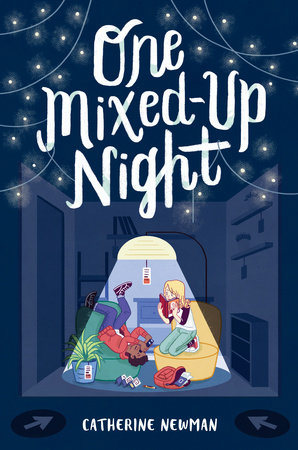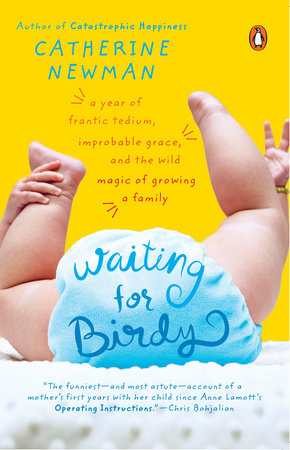No Grown-Ups in Sight: The Freedom of Middle Grade Adventures
by Catherine Newman
There’s a moment in One Mixed-Up Night when Frankie, the narrator and co-hero, says that she feels like a kid in a candy store. She and Walter, her best friend and partner in crime, are spending the night in IKEA, and nobody knows they’re there. They have the run of the place, and they can jump on all the beds and race shopping carts down the hallway and eat however many crazy Swedish delicacies they want from the cafeteria. For me, as a kid, that was the ultimate fantasy: not a kid in a candy store with your mom there too, where yes, you can technically eat whatever you want, only you feel too guilty to, because someone’s watching you cram that third Charleston Chew and packet of Pop Rocks into your candy-hole, judging you, making you feel like you should probably rush home and eat a big kale salad to scrub all the sugar out of your system. No. That wasn’t the fantasy. The fantasy was the freedom to do what you wanted, just you and maybe another kid, no grown-ups in sight.
For my fifth-grade self, that was the thrill of From the Mixed-Up Files of Mrs. Basil E. Frankweiler. I really didn’t care about the Michelangelo statue or the old-rich-lady subplot. I was simply enchanted by the idea of two kids living alone, in the Metropolitan Museum of Art, actually inhabiting that crazily tempting place where you weren’t supposed to touch anything, let alone sleep on it. (Full disclosure: I grew up in New York City, so those Met “Don’t touch!” signs were fixtures of my mental landscape.) To imagine Claudia and her brother climbing into that elaborate historical bed, washing in the fountain, collecting the very coins from that same fountain — the coins I myself used to greedily eyeball on my trips there? It was pure magic.
And it was, I should clarify, pure realistic magic. I think there’s a kind of kid for whom an adventure based in realism — even if it’s stretched almost to the breaking point of plausibility — is so much more satisfying than pure fantasy. Because I knew for sure that I was never going to end up communing with a gang of bugs inside the pit of a ginormous peach — and I loved that book, I did. I loved the Narnia books, too, and the Wrinkle in Time series. But I had a special fondness for stories that could actually happen. Which explains, I think, something about the plot of One Mixed-Up Night. It is certainly unlikely that two kids would spend the night alone in a massive Swedish furniture store. But it is not impossible. And I had spent enough time listening to my son Ben and his best friend Ava leafing through the IKEA catalogue to know that having the run of the place was high on their list of fantasies. Were they ever going to spend a semester at Hogwarts? Of course not. But IKEA! That was an actual place where we actually went. What if they ditched their parents? What if that stylish and birch-patterned world became their oyster? I mean, it wasn’t likely to happen. But it could…
And for us parents? I try to remind myself all the time that our kids need mental space for adventure and independence. Even for simple privacy, for time to acquaint themselves with their own thoughts. In the book, Frankie longs for the simplest thing: a doorknob, because her bedroom door has no hardware, and she can’t close it. An early reader suggested to me that this was a slightly unrealistic detail, and I had to laugh because, of course, like all implausible fiction, it was lifted precisely from real life. When my son was just a little older than Frankie, he shyly confessed to his father and me that he wanted a doorknob — and we had honestly never even noticed that he had no way to close his bedroom door! This is one those childhood moments of transition — one foot still in the world of candy and adventure, and another stepping towards the world of privacy and independence. And because we are growing and changing just like our kids are, we didn’t say, “What are you planning to do in there?” We didn’t ask about the sudden need for privacy or space to think. Like Frankie’s parents, we installed a doorknob, kissed our kid’s rosy little half-child face, and closed the door behind us. No grown-ups in sight.
-
Books by the Author
-
Waiting for Birdy
Also available from:


